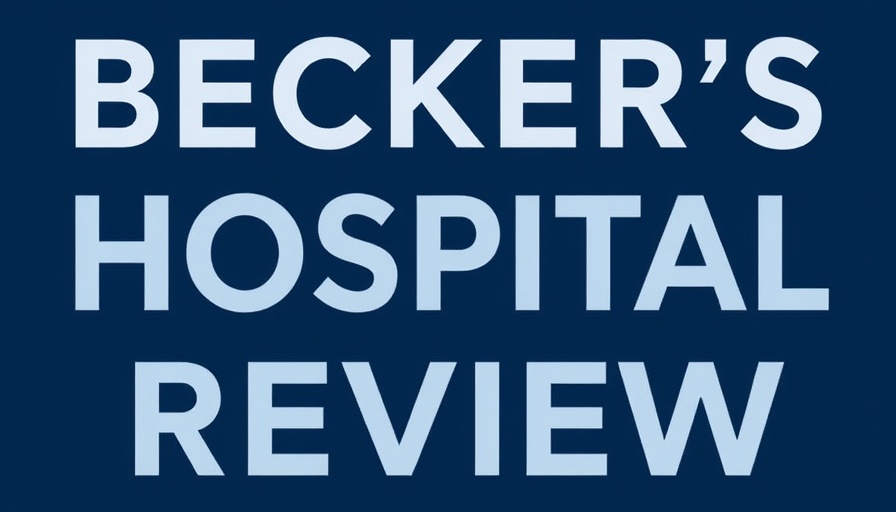
Understanding ‘Ozempic Mouth’: More Than Just a Trend?
As excitement around weight loss drugs like GLP-1 agonists continues to rise, so does the conversation about their side effects. Recently, terms like "Ozempic mouth" and "Ozempic teeth" have surfaced, referring to concerns about oral health in patients using these medications. Reports indicate that some patients are experiencing inflammation in their gums, tooth decay, and unpleasant breath, largely attributed to dry mouth caused by these drugs.
Dr. Ann Marie Defnet, an expert in obesity medicine and bariatric surgery, emphasizes that the changes these medications induce can significantly alter saliva production in the gastrointestinal tract, leading to dry mouth and other dental issues. This aligns with observations that many users on GLP-1 agonists—such as Ozempic—are less thirsty and may become dehydrated. "I've seen some patients mentioning dehydration but not severe oral health issues like periodontal disease or gingivitis," Dr. Defnet noted.
The Connection Between Hydration and Oral Health
One critical piece of advice for patients prescribed GLP-1 medications is to stay hydrated. Dr. Defnet advises her patients to actively remember to drink water, even when they don’t feel thirsty. Hydration is key to maintaining adequate saliva production, which protects teeth and gums. She cautions that without proper hydration, the risk of oral health complications may increase, especially for individuals already predisposed to dental issues.
Clinical Perspectives on GI Issues and Oral Health
A striking 25% of patients report gastrointestinal issues while taking GLP-1 medications. Common complaints involve bloating, nausea, constipation, and, in some cases, vomiting. This can directly impact oral health as well; chronic vomiting can erode tooth enamel and lead to further complications if not addressed. Dr. Defnet emphasizes the importance of brushing otherwise acidic environments immediately post-vomiting to safeguard dental health. “If patients experience severe GI symptoms like persistent vomiting, it's essential to consult a medical provider immediately,” she advised.
The Role of Dentists in Managing Oral Health of Patients on GLP-1
As healthcare providers, it’s crucial to recognize that patients on GLP-1 drugs may have unique oral health needs. Dr. Defnet stresses the importance of communication between physicians and dentists. Even when not directly prescribing GLP-1 medications, dentists should be informed about a patient's medication regime since these drugs can affect saliva and hence periodontal health. Ensuring patients reveal all medications can facilitate a more nuanced approach to their dental care.
Misinformation and Myths Surrounding GLP-1 Drugs
With a surge in GLP-1 prescriptions, misconceptions about these medications also abound. Many believe that they are free from side effects, but as acknowledged by Dr. Defnet, these drugs do present risks that require careful monitoring. Patients should be counseled thoroughly about potential side effects and educated on how to manage them effectively. This proactive strategy can help mitigate risks associated with dehydration and oral health issues.
The Importance of Continued Engagement in Care
Engagement between healthcare providers and patients cannot be overstated. Dr. Defnet advocates for regular check-ins and teaching patients about the importance of symptom awareness surrounding their medication side effects. This interaction is vital not just for managing weight loss but also for protecting overall health, including oral health.
A Call for Greater Awareness in Provider Education
As the knowledge about GLP-1 agonists evolves, it is paramount that medical practitioners receive ongoing education on the effects these medications have beyond weight loss, particularly concerning oral and gastrointestinal health. Ensuring that providers are informed can significantly improve patient outcomes and encourage a holistic view of treatment that encompasses general well-being, physical health, and mental health.
In conclusion, while GLP-1 agonists like Ozempic can offer significant benefits, awareness of their side effects—particularly regarding oral health—requires focused attention. Engaging in informed discussions about hydration, dental care, and ongoing communication with providers will play a crucial role in ensuring a better quality of life for patients navigating these medications.
 Add Row
Add Row  Add
Add 




Write A Comment